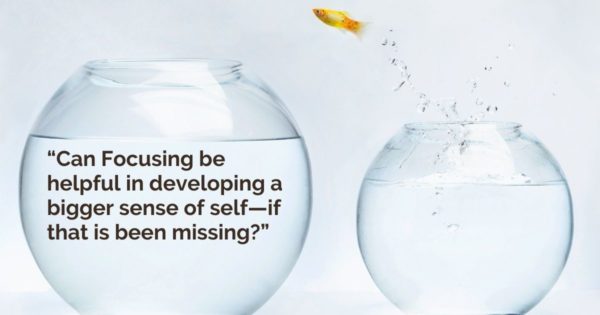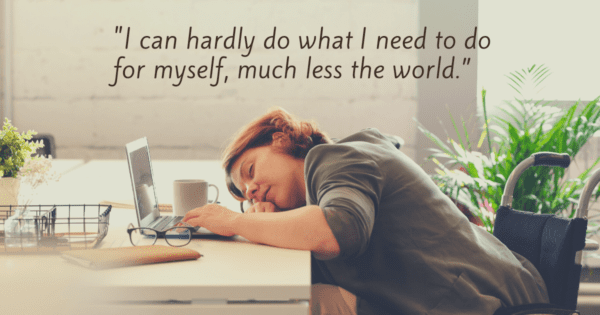“Focusing is a therapeutic process. So is it a therapy?”
Mary writes:
“Focusing has been so remarkable as a therapeutic process for me. I’m changing in ways that I wanted to change in 15 years of therapy. I’m so grateful to you and to the Focusing world.
“So is Focusing a therapy? It would have been so great if I had known it before. Shouldn’t more therapists know about it?”
Dear Mary,
You are touching on a point that is dear to my heart. Focusing is a therapeutic process (although it is more… it helps with thinking as well!) because when we do Focusing, we change in the ways that carry us toward our own fuller life.
Yet Focusing as a process is not itself a form of psychotherapy because we can do it alone, we can do it with friends, we can do it with a facilitator who is not a therapist… We can do Focusing in moments in the midst of our day, while driving, while standing in the supermarket checkout line… We can do Focusing while talking to our closest family members… AND we can also do Focusing as a part of psychotherapy.
I too wish that more psychotherapists knew about Focusing! Also coaches, spiritual directors, career counselors, and counselors of all kinds.
How therapists can benefit from Focusing
In my new book, Focusing in Clinical Practice: The Essence of Change, I talk about how powerful it is when the therapist knows Focusing:
“As a clinician, your own process of being inwardly connected to experiencing from moment to moment in the therapy setting and also before and after you see your clients is crucial and determinative for how much you can facilitate Focusing in your clients. Your own Focusing process is a source of your genuine presence and our ability to respond to your clients in a way that interacts with and supports their own ‘carrying forward.’ Your being in touch with yourself at an experiential level can offer you the emotional presence you need to go through difficult relational times with your clients. You can use Focusing to feel complete-for-now with one client and be ready for the next person through the door, and you can bring your more persistent challenging reactions to clients into Focusing sessions with peers or supervisors so that your own needed steps of change can occur, and clear the way for you to be fully present with your clients.
“The Focusing process can support you at the same time that it provides you with a way to support your clients. You and your clients both can be in contact with the fresh edge of experiencing, the emergent process in the moment that is the essence of change.”
So help me spread the word, and let’s tell all the healing professionals in our lives about Focusing and how it can fit with what they are already doing.







Please, how to we read earlier posts?